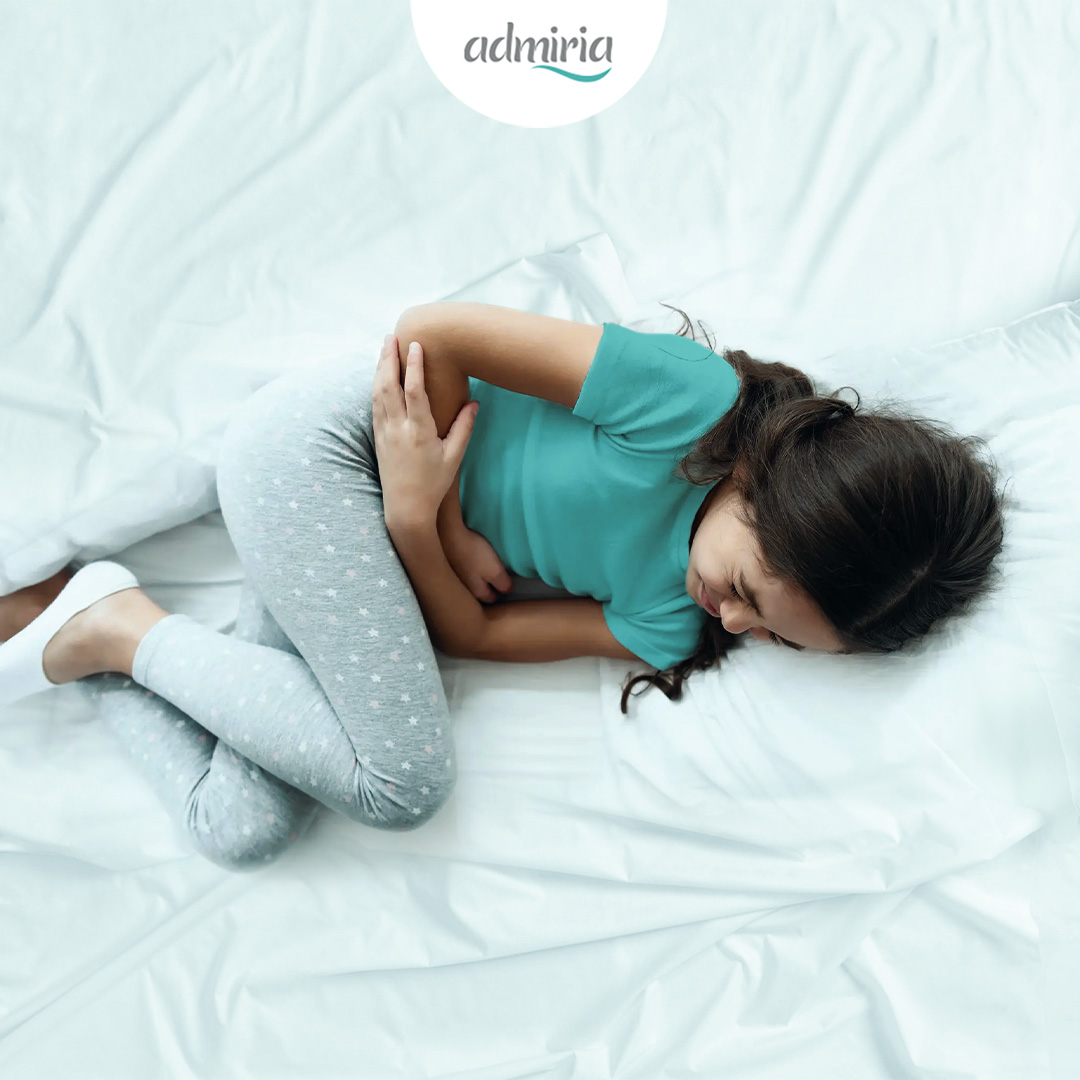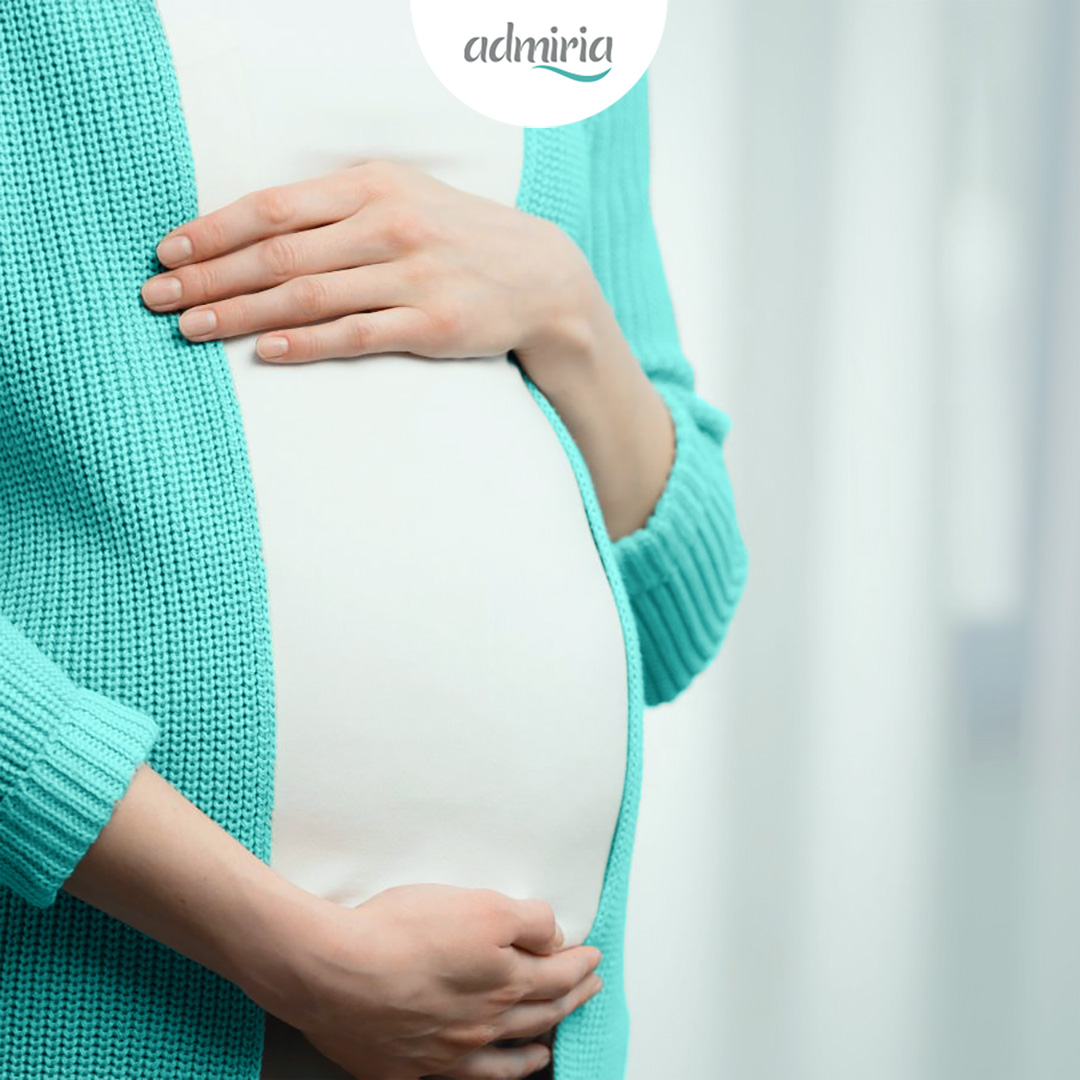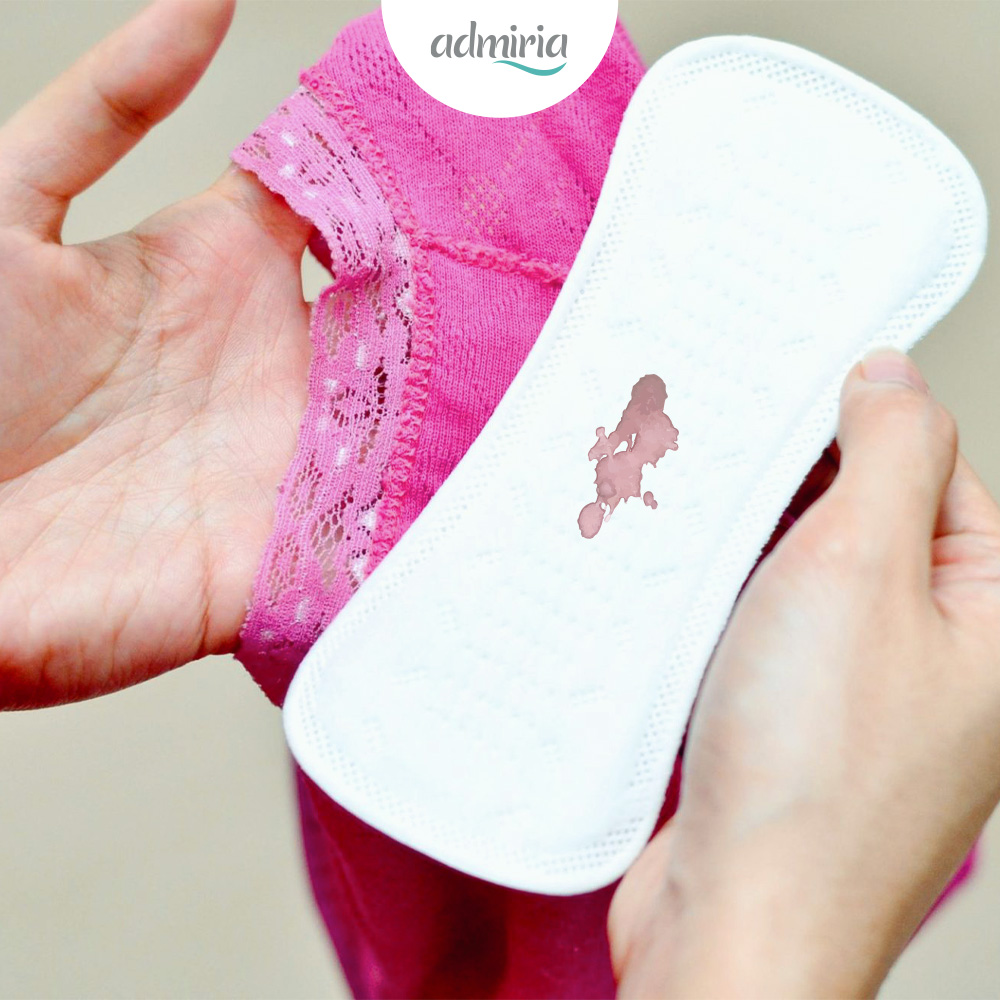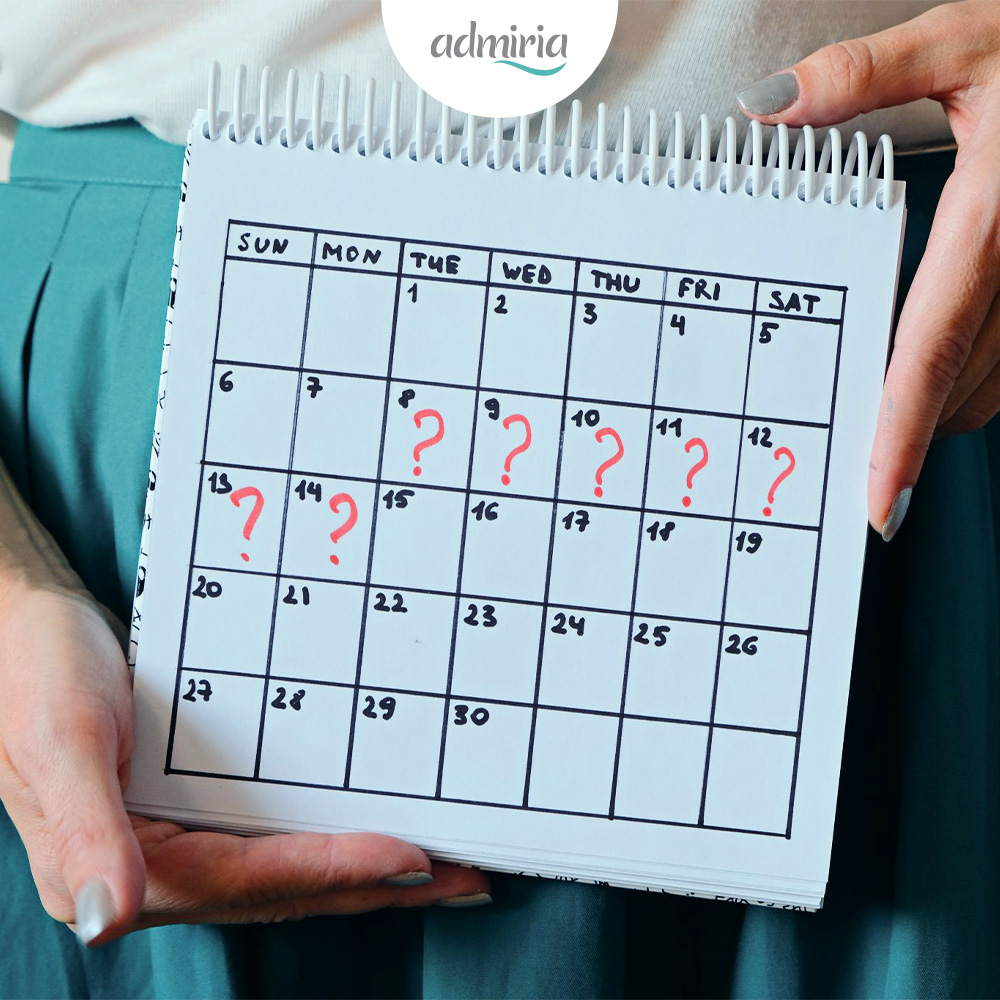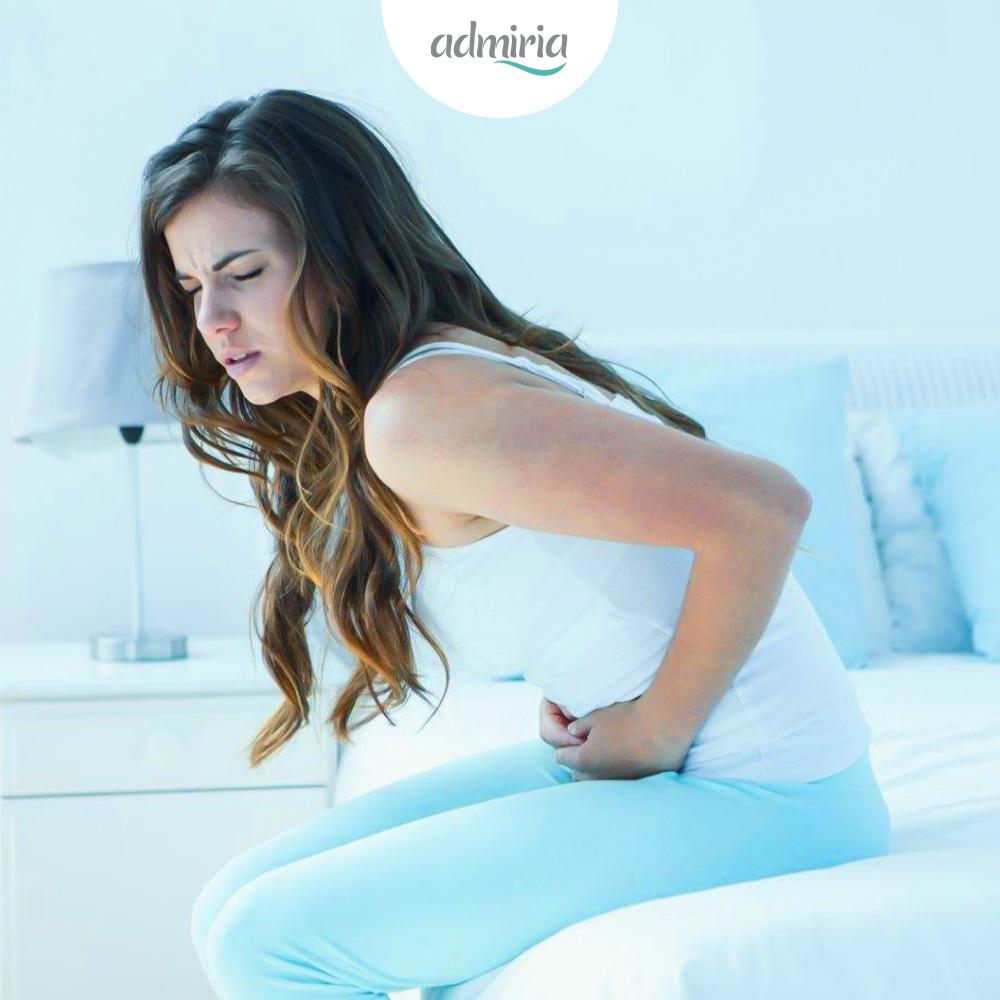
Last Update: 22 June 2024
11 Reasons for Early Period and Corresponding Solutions
What are the reasons of early periods? When you have an early period, you might have concerns about your health. Women’s menstruation repeats every 28 days. But, sometimes it happens that you get your period once every two months and sometimes every 26 days, 35 or 42 days. Normal menstruation should occur every 25 to 35 days, that is, it should take 25 to 35 days from the start of the first bleeding to the next bleeding.
Many women whose periods do not occur on the same day every month (for example, the 25th of every month), think that their periods are not normal. But they should not be worried; because menstruation does not need to occur exactly on the same day. A change of two or three days in menstruation is not a special problem. But if the interval between two periods is less than 25 days or more than 35 days, you should consult a physician.
Menstruation is not regular, particularly during adolescence and the first year of puberty; because the body’s hormonal system has not yet started its work well. This may continue for two years or even more. Around the age of 45 to 50, when most women approach menopause, the hormonal system becomes almost tired and the monthly periods become irregular. This state will continue until menopause! Even if we ignore the issue of age, irregular menstruation is not a very important issue. But if your monthly periods have been irregular for a long time, we recommend you to see a gynecologist. Stress, anxiety, and disturbing events can cause irregular menstruation by changing the ovulation process and causing disturbances in progesterone secretion. Thyroid, hypothalamus, or pituitary problems, which are involved in the production of female hormones, can also cause irregular periods. Even the ovaries may have a problem and despite the command they receive from the brain, they do not produce sufficient hormones! It is interesting to know that the increase in male hormone secretion also causes irregular periods. Infection, tumor, fibroma, or endometriosis can also be possible causes.
Other reasons for irregularity or cessation of menstruation are overweight, weight loss, nutritional disorders, and doing heavy sports. Now, let’s examine each of these cases in a comprehensive way:
Some of the reasons for the early period are as follows:
1- Puberty and the cause of early periods
Usually, teenagers experience irregular periods at the beginning of puberty. Statistics in this field have shown that most girls at this age often search for the phrase of “Cause of Early Periods.” At the beginning of puberty, the female body begins to produce hormones; hormones such as estrogen and progesterone. After the release of these hormones, their bodies undergo some changes. These changes include:
• Increase of height and weight.
• Increased hair growth in the arms, armpits, and pubic area.
• Skin changes such as increased pimples, blemishes, and acne.
Also, the changes during puberty prepare the female body for reproduction. Women experience their first period between the age of 12 and 13. The average menstrual cycle lasts about 28 days, but some women have shorter or longer periods.
Among teenage girls, the cycle interval is 32.2 days. In the early years of menstruation, 90% of periods last 21 to 45 days, but they may have periods outside this range. In the third year, 60 to 80 percent of menstrual cycles last 21 to 34 days. At least in the first 6 years of menstruation, a person’s menstrual periods may be irregular.
Should you see a physician if puberty is the cause of early periods?
If a child starts menstruating before age 8 or has other signs of puberty, parents may want to seek medical attention. Adolescent girls who do not show signs of breast development by the age of 13 may have delayed puberty.
Delayed puberty can occur for a variety of reasons, including insufficient body fat, genetics, and problems affecting the ovaries.
It is recommended to see a physician if the above two cases apply to you; otherwise, your case is completely normal.
2- Before Menopause
Menopause in women usually occurs between the ages of 47 and 51. This can cause fluctuations in hormone levels, especially estrogen and follicle-stimulating hormone (FSH). Some women get their periods a few days earlier due to increased FSH levels. Women can expect lighter and shorter periods during this period, as estrogen levels decrease during the transition period.
Some other symptoms of perimenopause:
• Longer or shorter periods.
• Heavier or lighter bleeding.
• Vaginal dryness.
• Changes in libido.
• Flushing.
• Mood swings and irritability.
• Difficulty sleeping.
3- Sports
Vigorous exercise can cause irregular periods, or cause your period to stop altogether. Often, this condition is associated with athletes who train several hours a day. Exercise only affects your periods if you burn more calories than what you consume.
4- Weight fluctuations
Period irregularities often occur with rapid weight loss. This can happen with extreme dieting, gastric bypass surgery, or eating disorders.
When the body enters starvation mode, it stores energy for essential life functions such as breathing. Your body stops producing reproductive hormones, which leads to period irregularities.
5- Stress and pressure
Severe stress can disrupt your hormonal level and cause irregular periods. If you are constantly stressed or things happen in your life that cause you a lot of discomfort and pressure, it can affect your period.
6- Blood thinners
Taking blood thinners may prolong your period and cause heavy bleeding. Anticoagulants are naturally secreted during your period to help thin the lining of your uterus so it can exit the vagina. The use of anticoagulant drugs doubles this issue and increases bleeding.
7- Emergency contraceptive pills
Emergency contraception is used to reduce the risk of pregnancy after having unprotected sex.
EC pills contain hormones that disrupt the normal process of ovulation. This may lead to an early or late period. If you use EC pills regularly, your periods may become irregular.
It is not uncommon for women to experience breakthrough bleeding after having an IUD inserted by their doctor. It takes a few months for your uterus to get used to the IUD, and during this time you may bleed daily or irregularly.
8- Sexually transmitted infections (STI)
Sexually transmitted diseases cause late and/or early period. It is recommended that if you have the slightest symptoms of sexually transmitted diseases, you should definitely visit the relevant physician and be informed about this issue by conducting a test.
9- Endometriosis
Endometriosis occurs when endometrial-like tissue begins to grow outside the uterus in areas such as the ovaries, abdomen, and intestines. About 11% of women between the ages of 15 and 44 in the world are affected by this issue.
In addition to unexpected bleeding, endometriosis can cause the following:
• Severe menstrual pains.
• Chronic back pain.
• Pain during or after sex.
10- Diabetes
Many women with type 2 diabetes have irregular periods.
11- Thyroid and early period
It is thought that one in eight women will develop thyroid disease in their lifetime. Thyroid conditions cause your body to make more or less thyroid hormone than your body needs. This hormone is essential for several body functions, including metabolism and the menstrual cycle. Your individual symptoms depend on whether you have an underactive or overactive thyroid.
In addition to premature menstruation, you may experience the following:
• Periods that are lighter or heavier than usual.
• Faster or slower heart rate than usual.
• Difficulty sleeping.
• Unexpected weight loss or gain.
Should we go to a doctor for early period?
In general, no. Unless you suffer from a severe period delay or have had a miscarriage. Also, if this early period is repeated frequently, it is recommended to see a doctor to find out the cause and treatment.
In this article, Admiria tried to examine all the issues related to the cause of the early period. If you are facing this problem and any of the eleven issues above happen to you, be sure to take action for eliminating the problem.
Also, if this article was useful for you or if you have any questions, express them in the comments section.
How to treat early periods?
The treatment of premature period depends entirely on the cause. For this reason, it is necessary to first see what is the cause of our early period and then take action to solve it according to the problem we have.
• Practice yoga. Yoga can be an effective treatment for various menstrual problems.
• Maintain a healthy weight.
• Exercise routinely.
• Spice things up with ginger.
• Add some cinnamon.
• Get your daily dose of vitamins for a healthy period.
• Drink apple cider vinegar every day.
• Eat pineapple.
In the end, it is recommended to consult the relevant doctor in case of frequent changes in the timing of the period.
Is it okay to have a period after 15 days?
Most women have menstrual periods of four to seven days. Women’s periods occur every 28 days, but a normal cycle can be between 21 and 35 days. Examples of irregular periods include periods with intervals less than 21 days or more than 35 days.
Overview
The initial period itself does not indicate a problem. However, if other changes occur during menstruation or if a person is concerned, a doctor should be consulted.
Hormonal fluctuations during puberty and menopause can cause periods to start earlier than expected.
Meanwhile, some sexually transmitted diseases, including chlamydia, gonorrhea, and syphilis, can cause vaginal bleeding between periods.
In addition, miscarriage and implantation bleeding can sometimes feel like menstruation, as each can include abdominal cramping and vaginal bleeding.
It should be noted that the secreted blood may be darker than normal period blood. Anyone who is unsure can confirm the cause of the bleeding with a home pregnancy test.
During pregnancy, placental tissue is removed from the body in the form of red and clot-like secretions. Anyone who thinks they are experiencing this problem should contact their doctor immediately.
The relationship between early periods and pregnancy
Your period stops when your body starts producing the pregnancy hormone, human chorionic gonadotropin. However, you may be pregnant and have light bleeding when your period starts. This type of blood is more common in early pregnancy.
 Admiria
Admiria 